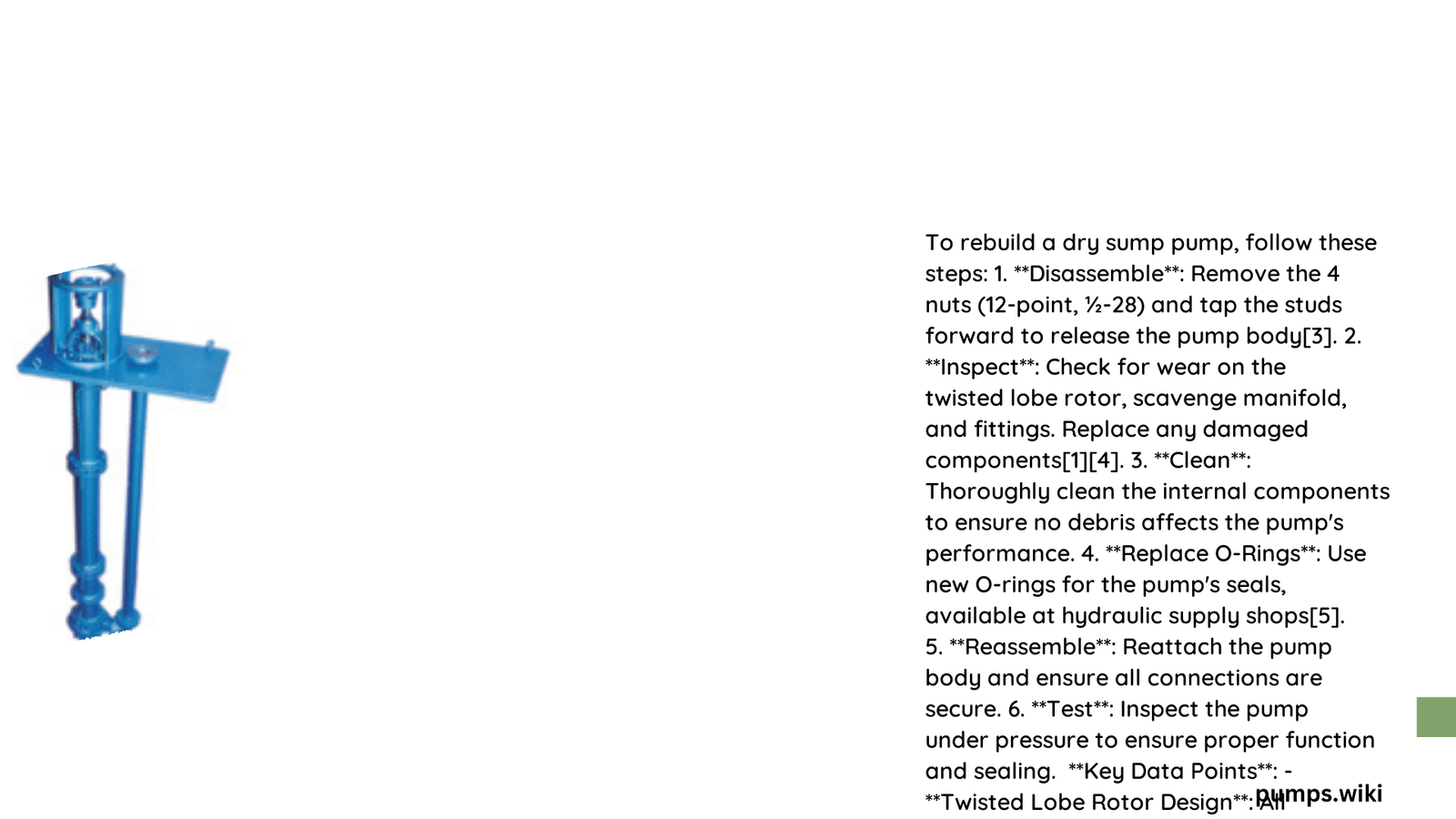A dry sump pump rebuild is a critical maintenance procedure for high-performance engines, involving meticulous disassembly, inspection, and reassembly of complex oil circulation systems. Precision is paramount, requiring specialized tools, technical expertise, and systematic approach to restore optimal lubrication performance and prevent potential mechanical failures.
What Are the Essential Preparation Steps for Dry Sump Pump Rebuild?
Tools and Materials Checklist
Before beginning the rebuild process, gather these critical components:
| Tool Category | Specific Items |
|---|---|
| Hand Tools | – 12-point ½-28 nuts and studs |
| – Hammer | |
| – Regular screwdriver | |
| – Smaller precision screwdriver | |
| Replacement Parts | – O-rings |
| – New keys | |
| – Lubricating oil | |
| Safety Equipment | – Work gloves |
| – Safety glasses |
Preliminary Inspection Techniques
How Do You Assess Pump Condition Before Rebuild?
- Visual Examination
- Check for visible wear on rotors
- Inspect shaft key grooves
-
Evaluate housing surface integrity
-
Mechanical Assessment
- Test shaft rotation smoothness
- Measure rotor clearances
- Verify gear tooth condition
Step-by-Step Dry Sump Pump Disassembly Process

Systematic Disassembly Approach
Rebuilding a dry sump pump requires methodical deconstruction:
- Initial Preparation
- Disconnect all external connections
- Clean external surfaces thoroughly
-
Document component positions
-
Rotor and Housing Removal
- Carefully remove nuts and studs
- Extract rotors systematically
- Label each component for reassembly
Key Challenges During Disassembly
- Preventing component damage
- Maintaining precise alignment
- Managing small, intricate parts
Precision Reassembly Techniques
Critical Reassembly Considerations
- Shaft Alignment
- Ensure drive shaft key groove points upward
-
Position idler shaft at 90-degree orientation
-
Torque Specifications
- Tighten nuts to 90-100 inch-pounds
- Use cross-tightening pattern
- Verify smooth rotation after assembly
Performance Optimization Strategies
Post-Rebuild Verification
- Lubricate all moving components
- Manually rotate pump
- Check for smooth, consistent movement
- Verify proper seal and alignment
Common Rebuild Mistakes to Avoid
- Improper key installation
- Incorrect rotor positioning
- Insufficient lubrication
- Over-tightening components
Advanced Diagnostic Recommendations
Wear Pattern Analysis
- Examine rotor surfaces for uneven wear
- Check key groove integrity
- Assess shaft concentricity
Cost and Time Investment
Rebuild Complexity Factors
| Complexity Level | Estimated Time | Approximate Cost |
|---|---|---|
| Basic Rebuild | 3-5 hours | $200-$500 |
| Advanced Rebuild | 6-8 hours | $500-$1,000 |
| Professional Service | 2-4 hours | $1,000-$2,500 |
Maintenance Recommendations
Preventative Care Strategies
- Regular oil analysis
- Periodic visual inspections
- Maintain proper lubrication
- Monitor operating temperatures
Conclusion
A successful dry sump pump rebuild demands technical skill, patience, and precision. By following systematic procedures and maintaining meticulous attention to detail, enthusiasts and professionals can restore pump performance effectively.
